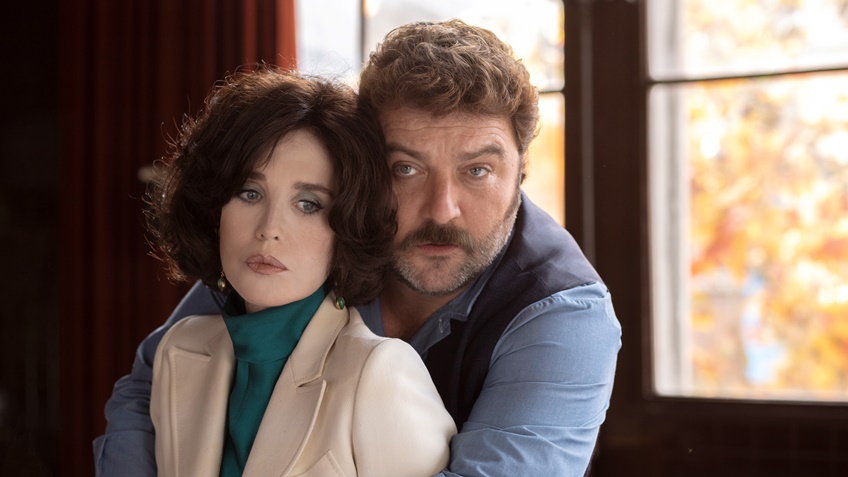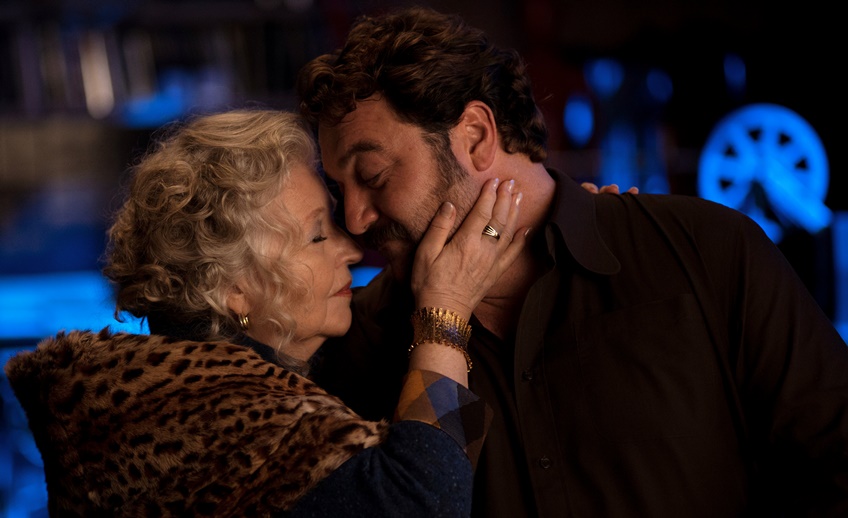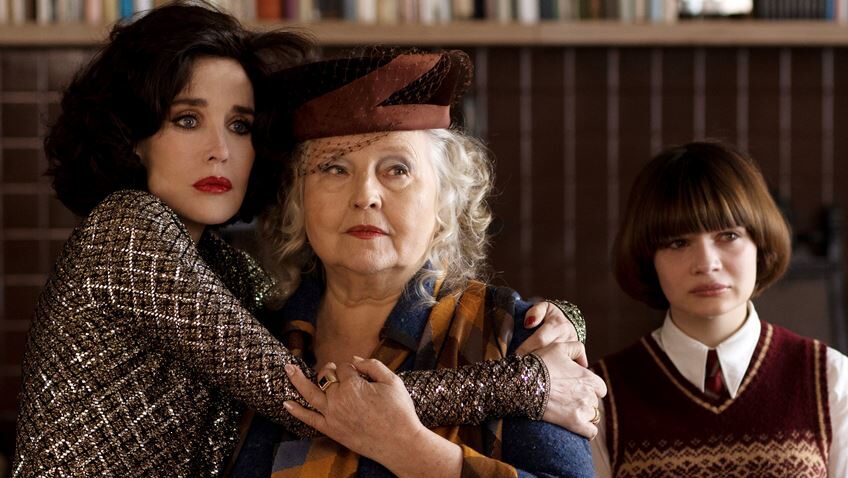Joyce Glasser reviews Peter Von Kant (December 30, 2022) cert. 15, 85 mins
Why, you might ask, has François Ozon, arguably France’s greatest and most prolific contemporary director, chosen to remake, almost scene by scene, Rainer Werner Fassbinder’s 1972 melodrama The Bitter Tears of Petra Von Kant? Is the answer because, after releasing a topical, relevant masterpiece earlier this year, Everything Went Fine, he can? Or is Ozon, particularly with a Ozonian gender-swap in the casting, celebrating the film’s 50th anniversary by paying homage to the German filmmaker who inspired him at the start of his feature film career?
After a decade making short films, Ozon’s second feature, from 2000, was the dark romantic comedy Water Drops on Burning Rocks, an adaptation of Fassbinder’s 1964 theatrical play Tropfen auf heiße Steine. Although Fassbinder never developed this particular play for screen, the plot and characters are reminiscent of The Bitter Tears of Petra Von Kant – as are the themes of loneliness and abusive power games in relationships. In both films and in the play this relationship is between an older, well-to-do, gay professional and a young, straight, stranger who is engaged to a woman, but who fantasises about having sex with a man.
To appreciate and, in some ways, make sense of Peter Von Kant, it is best to catch up with The Bitter Tears of Petra Von Kant (check out BFI i player). In that film a famous fashion designer, Petra, lives with a former lover, Marlene, whom she now treats as a slave in a sado-masochistic relationship. To acknowledge this shift, Marlene is mute. Petra’s first husband, with whom she has a daughter who is at boarding school, died in a car crash and her second marriage ended in mutual disgust.

One day, Petra’s cousin, Sidonie, comes to visit, bringing with her an attractive young woman (Hanna Schygulla) who has a boyfriend abroad. Petra is captivated and seduces her, promising to turn the young woman into a famous model. A year later this has come to pass, but now the cunning model is calling the shots on the lovesick, enfeebled Petra. Lonely and rejected, Petra lashes out at her mother, daughter and Sidonie. Even Marlene is fed up, leaving Petra with her bitter tears.
Ozon has removed the melodramatic “Bitter tears” from the title and changed Petra to Peter. Marlene is now Karl (Stefan Crepon), a still silent, skinny, rigid and robotic, servant. Fassbinder’s film had an all-female cast and Ozon has a cast of men and women, of varying sexual preferences.
Ozon casts Hanna Schygulla – the young model from Petra, as Peter’s mother and convinced Isabelle Adjani to play Sidonie, Adjani’s many talents and stunning looks making much more of the character than was apparent in Fassbinder’s film. Sidonie, a conveniently married Diva, is accompanied by a possible toyboy, Amir (Khalil Ben Gharbia) who mentions he has a girlfriend overseas. Amir is a knock-out.
Beside the fact that Ozon’s film, though still set in Germany is in the French language, and the running time is half that of Fassbinder’s film, the big change is that Petra is now Peter, and he is a film director.
As played by the burley, moustached, leather clad, heavy drinking Denis Ménochet (Ozon’s By the Grace of God, the farmer in Inglourious Basterds) and as directed and written by Ozon, Peter is also a parody of Fassbinder. Ménochet is one of France’s greatest character actors, but here he is overbearing and overacting.
The difference is that you cannot believe Peter capable of directing a film let alone his own life. Fassbinder did not do well with his private life, but he managed to direct 37 films in 15 years, a few of which are low budget masterpieces.
Fassbinder had messy, mixed gender love affairs, too, and when, at the end (spoiler alert) Peter’s uncompromising, egocentric, despotic personality gets the better of him and he loses the sympathy of his most loyal sycophants and friends, he drowns his sorrow in booze and cocaine. Fassbinder died of an overdose of drugs at age 37.

‘I’ve never felt so much love for anyone,’ Peter tells Amir after they spend the night together. Peter is confusing sexual excitement and a taste of youth with love, but Amir doesn’t care. Peter promises to make Amir a film star in exchange for that ambiguous love and on that, he delivers.
But it’s not long before the tables have turned and we watch Amir become as manipulative as Peter, but far more cunning.
As if to underscore the cautionary nature of the story, Ozon plays with the original film’s music. In a famous scene from the original in a moment of loneliness, Petra grabs Marlene’s hand and slow dances with her to Smoke Gets in Your Eyes, with the lyrics: “They said, ‘Someday you’ll find/All who love are blind/Oh-oh-oh-oh, when your heart’s on fire/You must realize/Smoke gets in your eyes.’” Ozon keeps this exact scene but has Peter dance with Karl to Each Man Kills the Thing He Loves. This serves not only as foreshadowing, but contributes to the theme that controlling, obsessive passion is not love. Peter cannot recognise that he has smoke in his eyes.
Of course, this choice of song is not accidental. Each Man Kills the Thing He Loves is from a poem by Oscar Wilde from The Ballard of Reading Gaol. Wilde was serving time for his passionate, reckless love affair with a younger man who took advantage of the older, successful writer’s passion.
And as Ozon knows, the same song was in the soundtrack of Fassbinder’s last film, Querelle shot ten years after The Bitter Tears. A story of betrayals and murder, it was based on the novel by Jean Genet. Neither Petra, Peter, Oscar or Querelle love wisely or particularly well. Fifty years on, Peter Von Kant does not shock the way The Bitter Tears of Petra Von Kant might have in the 1970s, but it is still a morality tale.




